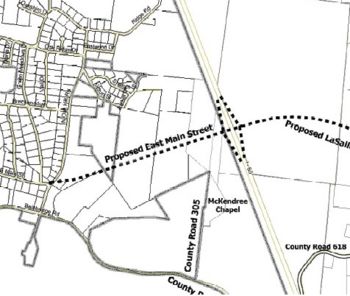104.12 Scope Changes (Scope, Estimate or Fiscal Year)

Once right of way and/or constructions dollars are identified in the STIP for any given project, the described activities become MoDOT’s commitment to the public that we will deliver the project in the identified time frames and budget. The integrity of the STIP can only be assured if the scopes, budget and delivery date of the projects contained within it do not change. Occasionally, however, the known parameters of a project can change unexpectedly, introducing variations that could not have been foreseen regardless of the amount of scrutiny given the project through the scoping process. In these cases, scope changes, even to publicly committed projects, may become necessary. These changes must be kept to an absolute minimum, however, and must be approved by the appropriate level of authority.
The project specific data included in the currently approved STIP is the basis from which MoDOT’s accountability will be measured from year to year. The data contained in the currently approved STIP will also be the basis for measuring any changes in the project’s scope. A scope change is defined as any modification to the elements or limits of a project that results in a deviation from the estimated cost for right of way and/or construction or the delivery schedule that is included in the currently approved STIP (that is, physical scope elements, cost or fiscal year).

All references to projects costs are based on the total right of way and construction funding included in the STIP as compared to the new project cost. The individual elements of the project cost are not measured independently for purposes of determining the amount or percentage of cost increase.
Requiring approval of scope changes will ensure that MoDOT management is aware of the implications associated with the proposed modifications and understands how it will impact the STIP commitments. Scope modifications will be limited to only those that MoDOT management feels are critical. This will lead to less re-design during the final design stage of project development and allow project schedules to be met more consistently.
Once a project is programmed in the current fiscal year, the programmed amount is used as a baseline for the Accountability Report and other purposes, and is not changed.
There are two kinds of scope changes: non-significant and significant.
104.12.1 Non-Significant Scope Changes
Each fiscal year Transportation Planning provides a project growth factor to account for increases in construction and right of way costs included in the STIP.
Any change(s) to the elements or limits of a project that changes the total cost of the project (right of way and construction) included in the currently approved STIP by an amount of less than the current annual project growth factor do not require any approval. Any change to Major Projects or projects funded with statewide funds require Transportation Planning approval.
Any change(s) to the elements or limits of a project that does not change the delivery of a project in the currently approved STIP to another state-fiscal year do not require District Engineer or Transportation Planning approval.
Any series or combination of multiple non-significant changes that occur within the same fiscal year shall be measured against the preceding criteria as a single scope change. Since all projects are measured from the currently approved STIP commitment any combination of non-significant scope changes that occur within the same fiscal year and cause the preceding criteria to be exceeded will, by definition, be considered a significant scope change.
104.12.2 Significant Scope Changes
| The current annual project growth factor, the “inflation factor”, is available in the current STIP. |
 |
 |
Any change(s) to the elements or limits of a project resulting in an increase in the total cost of the project (right of way and construction) included in the currently approved STIP by an amount greater than the current annual project growth factor (inflation factor) are considered significant and require approval by the district engineer or the district engineer's designee. Major Projects or projects funded with statewide funds will require additional coordination with and an approval from Transportation Planning in addition to District Engineer approval.
Any change(s) to the elements or limits of a project that changes the delivery of a project in the currently approved STIP to a different state-fiscal year is considered significant and requires approval by the district engineer or the district engineer's designee. Major Projects or projects funded with statewide funds will require additional coordination with and an approval from Transportation Planning in addition to District Engineer approval.
The details of the proposed scope change, the reasons why the change is necessary and the projected impacts to the project’s budget and delivery schedule must be included in the form of an automatically generated email to the District Engineer (or designee), liaison engineer and district planners. The District Engineer will either log into the SIMS and approve the change electronically, or will email a reply to all concurring with the scope change(s).
Any approval email from the District Engineer will be scanned by the district planner and uploaded to the SIMS system. Once that email is uploaded, Transportation Planning will approve the change in SIMS on behalf of the District Engineer.
If the District Engineer does not concur with the scope change, the change will not be accepted in the STIP. The same is true for projects requiring Transportation Planning approval.
